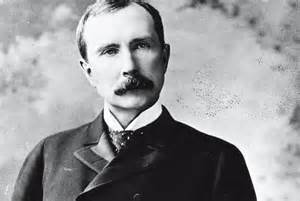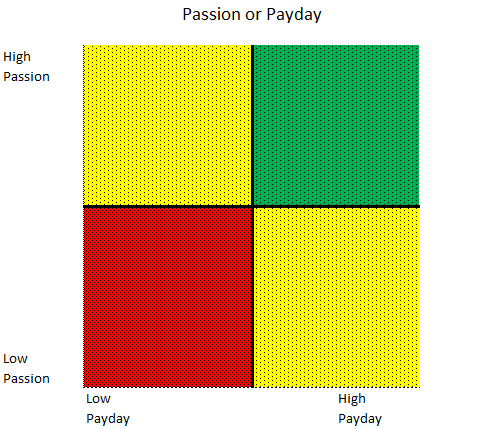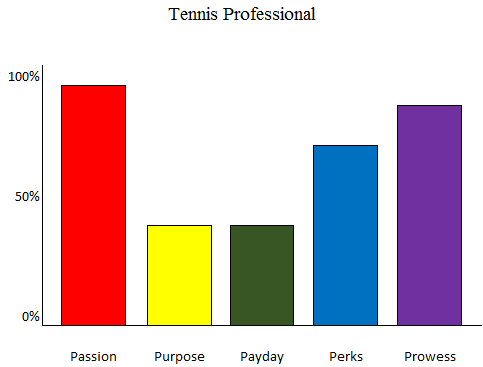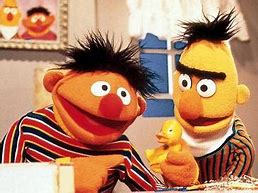
The Interplay of Passion, Purpose, Payday, Perks & Prowess
By Walter Oden
Introduction:
Do what you love and you will never work a day in your life! This may be true, but it leaves out the concept of bankruptcy, homelessness and hunger. How we choose a career is complicated. Why we stay in a career is equally complicated. Choosing to leave one career for another may take a more detailed analysis. This article proposes such an analysis.
Why the 5 P’s?
If you ever decided to consider another career, you know what happens. As you are scanning the job sites, you intend to look at careers outside your current business. Then it happens. You find yourself getting scared and go right back to the search words in areas you have experience. We all know why this happens. Leaving your comfort zone is a little frightening. Especially when you have a family to support.
Then it hit me. What we need to do is take an organized look at our career. What if we could categorize each job or career in terms of 5 categories?
Work & Sleep

We have all heard that 1/3 of your life is spent sleeping. That statistic is pretty important to the mattress industry. Well, how about working? Here is some quick math:
Years working: Age 21-67 = 46 years
Percent of day working: 9/24 = 37.5% * 6/7 days = 32%
That means for about 46 years, your job will be at least a third of your life. In fact, if you assume you are sleeping about 6 hours per night your job is 50% of your awake hours! The lesson: You better like your job. Which brings me to what “like” means.
You better have the right balance of Passion, Purpose, Payday, Perks & use of Prowess
Passion (Love)
What is your passion? I like beer and cheese. Is that a passion? Probably not. Yet, ask the founder of Samuel Adams. He probably considers great beer his passion. I think a passion is something you choose to do obsessively for unknown reasons.

One of my lifetime passions has been tennis. I hit my first tennis ball at age 11 against a wall. I can’t fully explain why I had to do that every day. I would ride my skateboard down to McKinley Elementary (later Lincoln Junior High) and hit against the wall for hours. Once I learned to play the game on a tennis court that became hundreds of sets per year.
Passions can become careers. I am a great example of that. Is that always the right path?
Purpose (Responsibility)
Purpose is often confused with Passion. Yet, they have nuanced differences. For example, tennis may not be my purpose. Often, we may not know our purpose at the time we are pursuing it. Sometimes, you may never know your purpose. Perhaps only outside observers know your purpose in the world. In other cases, only history will be able to judge your purpose.
Some people might connect the concept of purpose with a higher power. For instance, only GOD knows your real purpose in the world. Purpose is the ultimate life secret. “If I only knew my purpose, I would follow that path”. On the other hand, purpose is sometimes external to career. Most people would agree taking care of their family would be ranked high on the purpose list. When that is the case, it impacts your career decisions. In fact, we are often sacrificing our own passions based on purpose.
One final note. Some of us make “purpose” the only goal. Saint Mother Theresa comes to mind. She might even call her commitment to alleviating the suffering of people her “passion”. If you have found both your purpose and passion, nothing else may matter.

Payday (Coin)
It is too bad. We live in society that defines success by one metric; How much money do you make. In fact, we can’t help ourselves. We look up to the rich. We don’t even do it consciously. I think we can all agree that we don’t want to judge people by their wealth. Yet, we do treat people differently based on their economic stature.
Let’s assume you are at a cocktail party with the President of a Fortune 500 company and a Starbuck’s Barista. You will have a very different initial conversation. Once you get to know someone, the economics don’t matter in a relationship.
To some people, payday is how they keep score. The higher the payday (or stack), the more you are winning. Chasing the “payday” is a goal into its own. I work with children for a living. Sometimes I ask them what are your life goals? Yes, I do goal setting with my students. Life goals matter. I am very concerned when I hear “I want to be rich”. In fact, this is fairly common in my circles. That means they have been sold the concept “You are only a success if you are rich”.
Yet, seeking the big payday is not always bad. Why? The alternative. I have known people that grew up very poor. The daily struggle to eat and have housing made chasing the payday a reasonable life goal. Have you ever heard the story of Jim Carrey about being homeless with his family?

When you hear these stories you understand why people want to have money. Also, there are famous people that made/make a huge impact in the world because they had money. JD Rockefeller and Bill Gates are just a couple of examples. That real impact to society (purpose) would not have been possible without them chasing their payday.

So, maybe the key to this discussion is why do you want a payday? Is it to live the life of a celebrity? I just loved the show Entourage. The premise of the show was 4 kids growing up poor in Queens, New York.
Their goal was to become rich and famous and take each other along for the ride. Every day was a party. Yes, a big payday makes that life possible.

There is also a self-worth factor. We liken respect with wealth. I will be looked up to or respected if I am wealthy. Some people equate happiness with “payday” or wealth. Seeking the payday is not necessarily bad. But, it does have its pitfalls. We will discuss this later.
All these questions connected with “Payday” are nuanced and connected with our other P’s in the analysis.
Perks (Lifestyle)
Perks can certainly be the obvious extras of a job. Healthcare, bonuses, company car are all perks of a career. But that is not what I am talking about. I am talking about the stuff that makes your life better. It might be that you have people at your work that have lots of Indians and Cavs tickets they give away to you. It might be you have a lot of flexible time. In other words, your job allows you to come and go as you see fit. That might let you to attend your kid’s baseball games in the afternoon. Some jobs might be low in payday, but high in perks. Maybe you get to work from home. The opposite might be also be true. A job could be really high in payday and low in perks. The final analysis is rating all five P’s in these terms.
Prowess (Skill)
Prowess is our current skills sets. It may be something we trained to do. It could be our formal education. This is a dangerous P. If I spent 20 years in retail consulting, it is hard to look for a career outside that skill set.
The problem is that skill sets are used to determine employability. In some cases, they can set you up for the job you really want. A story that comes to mind is Harrison Ford. In his early career, he was a self-taught carpenter. He learned these skills as a young actor to pay his bills. He took all sorts of jobs within entertainment as a carpenter. He was even a stage hand for the Doors! This eventually got him introduced him to George Lucas. He was given a small role in American Graffiti. Yet, he was still being hired as a carpenter. In fact, even after American Graffiti, George Lucas hired Ford as a carpenter to expand his office.
He got additional small roles in some of George Lucas’ next films until that famous day. Ford was finally hired by George to read lines opposite actors auditioning for Star Wars. George finally noticed, “this guy could be my Han Solo.”
So, the key to this category is that we all have a variety of skills sets. Sometimes, those skills are connected with our career. Sometimes they are not. Is your current career simply using your skills without having huge passion, purpose or perks? Prowess matters, but use it wisely. Harrison Ford successfully pivoted a skill into a passion and purpose.

The Paradox (The Hidden 6th P)
I have been lucky enough to live in two very different career worlds. My initial career was a CPA in a large multinational firm. My second career was pursuing my passion for tennis. I am careful to refer to tennis as a “Passion”. Tennis is not my “Purpose” in life. That is yet to be determined. I would also not consider it my “Payday”. Yes, I get paid. Although, each year varies with the economic wind. Clearly, I chose the passion as the priority.
You might argue my job is high in perks. Relationships are strong and familiar. My friendships are pure and honest. I teach children and adults to love something healthy. I essentially have become a part of many families. I consider this a tremendous perk.
On the other hand, there are times the economic pressure can make this career difficult to sustain. There is not a year that I don’t consider chasing the “payday”. In fact, I question the validity of prioritizing my “passion” in place of my “purpose”. I believe my “purpose” is to be a good husband and father. Therefore, taking care of my family must trump all other goals. Being true to that “purpose” may require a bigger sustained “payday”.
For a final twist in the paradox, I would never have met my wife (or had my family) without following my “passion”. I met my wife (of almost 15 years) on a tennis court! So, my “purpose” was introduced to me because I chased my “passion”.
Some Graphs to Analyze your 5P’s
I am a graph guy. I love them. I created a couple of graphs to use these concepts. The first uses 2 of the 5P’s. I decided to use “Passion” and “Payday”. In the graph below, you have 4 quadrants. If you find a career that has is high “Passion” and high “Payday”, you hit the jackpot. I labeled that area green for GO. If you have a job that is low “Passion” and low “Payday”, I gave it an obvious red color. The only reason you wouldn’t STOP right there would be the “Purpose” factor was off the charts. The other two quadrants are yellow because you need caution. What balance between Passion and Payday fits your current situation?

The next graph might be a little more useful. It lists all the 5P’s in a bar graph. The goal is to rank your current job with a percentage in each of the 5P’s. Imagine getting a job that pays you over $1M per year for digging out roadside ditches. Your graph would be 100% on payday, but nearly 0% in each of the other categories. I included my current analysis of my career in tennis. It might be important to set limits or floors in each category. Maybe a warning sign would be if a single category falls below 50%. It all depends on your personal situation.

Some Conclusions:
I think the most important point is that our graphs change with time. Life events, age of our children, health of parents can all drastically change our analysis.
Since our graphs change over time, a “P” may abruptly fall below a certain level. For example, my job role was just changed. Suddenly, Passion and Purpose have been forced below the 50% mark. This can lead to increased stress, pressure and unhappiness. The Payday and Perks better be high enough to compensate, or something will have to give.
Likewise, if I have been forced to take a pay cut, you may find that no Passion, Purpose or Perks can justify staying in that job or career. Honesty in this analysis is key. If playing guitar is my passion (and job), but I can’t pay the mortgage it is time to get another job!
Thanks for taking the time to read this article. Your feedback is always welcome.

Copyright Walter Oden – October 21st, 2016 – All Rights Reserved
Please review the global copyright notice on my homepage sidebar



